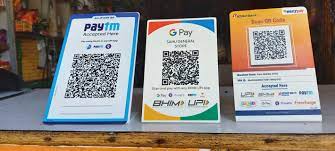
Technology can play a crucial role in helping neighborhood businesses thrive and grow. Each neighborhood can pool their resources and build a community tech support through small technology companies and enable their stores with simple and easy tech solutions. Here are several ways in which technology can be leveraged to support and build neighborhood businesses:
- Online Presence: Establishing an online presence through a website, social media, and online listings can help businesses reach a broader audience, including those outside the immediate neighborhood.
- E-commerce: Implementing e-commerce solutions allows neighborhood businesses to sell products and services online, expanding their customer base beyond physical boundaries.
- Digital Marketing: Technology enables targeted digital marketing campaigns, such as social media advertising and search engine optimization (SEO), helping businesses attract and retain customers.
- Online Booking and Reservations: For businesses like restaurants, salons, and fitness studios, online booking and reservation systems make it easy for customers to schedule appointments or order food online.
- Mobile Apps: Developing a mobile app can enhance customer convenience, loyalty programs, and in-app purchases, providing a more seamless experience.
- Delivery Services: Implementing delivery services, whether through partnerships with third-party platforms or proprietary systems, allows businesses to meet the demand for online ordering.
- Inventory Management: Technology can streamline inventory management, helping businesses optimize stock levels, reduce wastage, and offer a broader product range.
- Point-of-Sale (POS) Systems: Modern POS systems enable contactless payments, customer tracking, and data analysis to better understand customer preferences.
- Customer Relationship Management (CRM): CRM software helps businesses manage customer interactions, track purchases, and send personalized offers and promotions.
- Online Reviews and Reputation Management: Encourage and manage online reviews to build trust and credibility with potential customers.
- Data Analytics: Analyzing data collected from various sources, such as website traffic, social media engagement, and customer behavior, can inform business decisions and marketing strategies.
- Online Learning and Training: For service-oriented businesses, technology can facilitate online training and education for employees, ensuring high-quality service delivery.
- Supply Chain Optimization: Utilizing technology to track and optimize the supply chain can help businesses reduce costs and improve efficiency.
- Remote Work: For businesses with administrative functions, enabling remote work can reduce overhead costs and improve flexibility.
- Customer Feedback: Collect feedback through digital surveys and online platforms to understand customer satisfaction and make necessary improvements.
- Sustainability Practices: Embrace technology to adopt sustainable practices, such as energy-efficient equipment and eco-friendly packaging, which can attract environmentally conscious customers.
- Community Engagement: Use technology to engage with the local community through online events, forums, and social media groups to foster a sense of belonging.
By embracing technology, neighborhood businesses can enhance their competitiveness, improve customer experiences, and adapt to changing consumer preferences. Additionally, technology can enable businesses to become more efficient, which can lead to growth and sustainability in the long run.